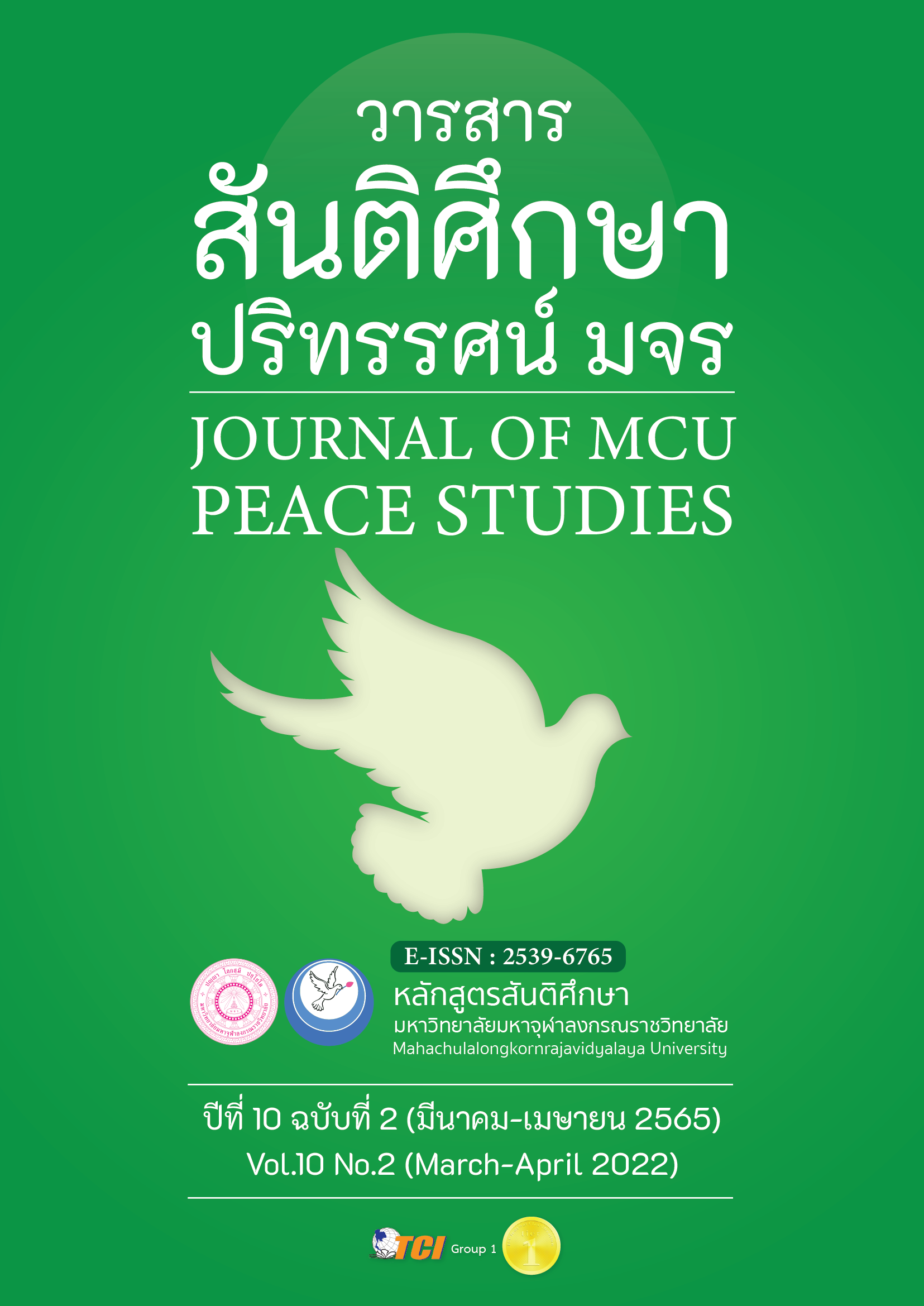รูปแบบพฤติกรรมเชิงพุทธในการพัฒนาทักษะการสื่อสารภาษาอังกฤษ ทางธุรกิจ ของนักศึกษา มหาวิทยาลัยเทคโนโลยีราชมงคลล้านนาลำปาง
Main Article Content
บทคัดย่อ
v
The research article consisted of the following objectives: 1) to investigate the Buddhist behavior for developing the English communication skills of students at Rajamangala University of Technology Lanna, Lampang Campus; and 2) to develop and present the Buddhist behavior in the development of business English communication skills for students at Rajamangala University of Technology Lanna, Lampang Campus. The study applied a qualitative research method. The research instruments included: 1) structured interview form; and 2) focus group discussion. The key informants were 6 entrepreneurs, 12 Bachelor degree students who studied all English subjects related to business English communication, and 5 program faculty members, totaling 23 persons.
According to the first objective, the 7-step knowledge management process was used to investigate the Buddhist behavior in developing business English communication skills, it is found that program faculty members have clear goals for developing the English communication skills of students. As a result, the content of each subject is improved to respond to the needs of students in various areas, the learning exchange is promoted in class, the field trip is organized, and the use of Iddhipāda (Four Paths of Accomplishment) as a recruitment criterion. The development of English communication skills for students can apply Iddhipāda which comprises: Chanda (aspiration), Viriya (effort), Citta (thoughtfulness), and Vīmaṃsā (investigation). Students are encouraged to love what they do and to put out effort in order to develop their business English communication skills.
Article Details

อนุญาตภายใต้เงื่อนไข Creative Commons Attribution-NonCommercial-NoDerivatives 4.0 International License.
ทัศนะและความคิดเห็นที่ปรากฏในบทความในวารสาร ถือเป็นความรับผิดชอบของผู้เขียนบทความนั้น และไม่ถือเป็นทัศนะและความรับผิดชอบของกองบรรณาธิการ ยินยอมว่าบทความเป็นลิขสิทธิ์ของวารสาร
เอกสารอ้างอิง
work-to-family conflict: A review and agenda for future research. Journal of Occupational Health Psychology, 5, 278 - 308.
Greiner, M., Böhmann, T., & Krcmar, H. (2007, October 30). A strategy for knowledge
management. Retrieved September 16, 2020, from https://www.emerald.com/insight/content/doi/10.1108/110832127/full/html
Glezer, H. & Wolcott, I. 1999. Work and family life: Reciprocal effect. Family Matters, 52, 69
– 74.
Office of the National Economic and Social Development Council. (2017). 12th Economic
and Social Development Plan. Retrieved September 5, 2020, from
https://www.nesdc.go.th/dl_link.php?nid
Piercy, N., & Giles, W. (1989). Making SWOT Analysis Work. Retrieved September 09, 2020,
from https://www.emerald.com/insight/content/doi/10.1108/EUM042/full/html
Weber, J. (2009). Using Exemplary Business Practices to Identify Buddhist and Confucian
Ethical Value Systems. Business and Society Review. 4(114).


